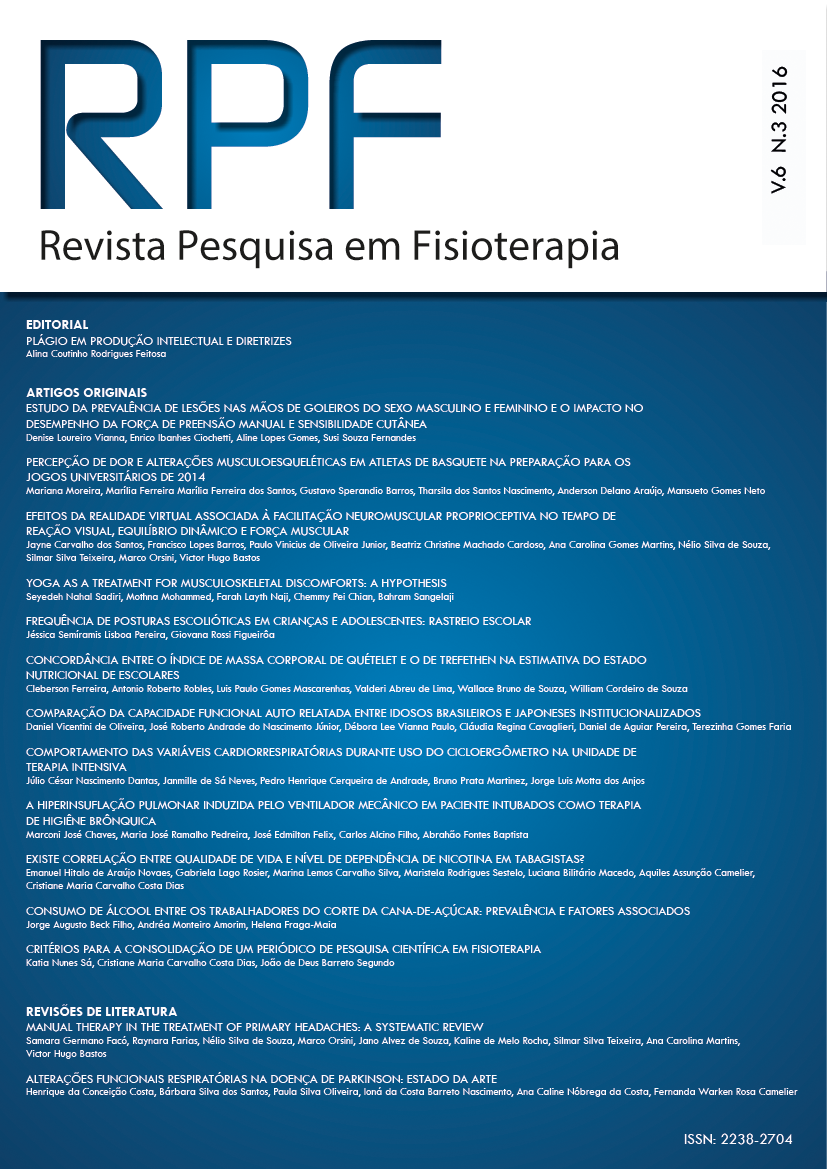RESPIRATORY DYSFUNCTIONS IN PARKINSON’S DISEASE: STATE OF ART
DOI:
https://doi.org/10.17267/2238-2704rpf.v6i3.987Keywords:
Parkinson disease, Respiratory Function Tests, EvaluationAbstract
Introduction: Parkinson’s Disease (PD) is a chronic progressive neurodegenerative pathology related to a multiple monoaminergic dysfunctions, including dopaminergic, cholinergic, serotoninergic and noradrenergic systems deficits. Classic motor system deficits like stiffness, bradikynesia, postural instability and tremors are present in such conditions. The motor system deficits lead to a reduction in respiratory muscle function and the lung mechanics and respiratory function are then modified. Objective: To summarize the PD impact on respiratory function knowledge through a systematized literature review. Methods: This is a literature review study. Bibliographic search was conducted in Bireme, Scielo and PubMed databases. Original papers published from January first, 2000 to June first 2016 were selected. Papers with pulmonary function with measurement of forced vital capacity, cough peak flow, respiratory muscle strength and thoracic mobility were included. Papers with other outcomes and those whose authors had not acess to full text versions were excluded. Results: Forty-five papers were initially selected, being 29 excluded. At the end, sixteen papers entered in the study, and two of them evaluated thoracic mobility, 11 evaluated cogh peak flow and forced vital capacity, and four evaluated respiratory muscle strength. Final Considerations: This literature review suggests that subjects with PD have a reduction of thoracic mobility, cough peak flow, respiratory muscle strength and lung volumes and capacity, leading to a compromised functionality of this subjects.



